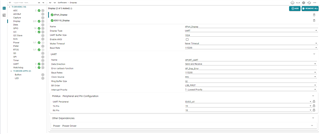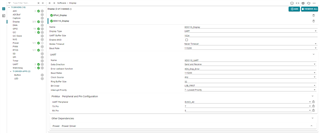Part Number: MSP-EXP432P401R
Hello everybody,
this might be a stupid question, but how do I change the display I acctually want to access?
I have two UART Displays and due to the standard defintion
Display_Handle hSerial = Display_open(Display_Type_UART, NULL);
calls the first display only. How can I set the ID correct to access the second display? I tried "1" and "0" however it's always the first display chosen as output.
Thanks for your help,
all the best
Aaron






